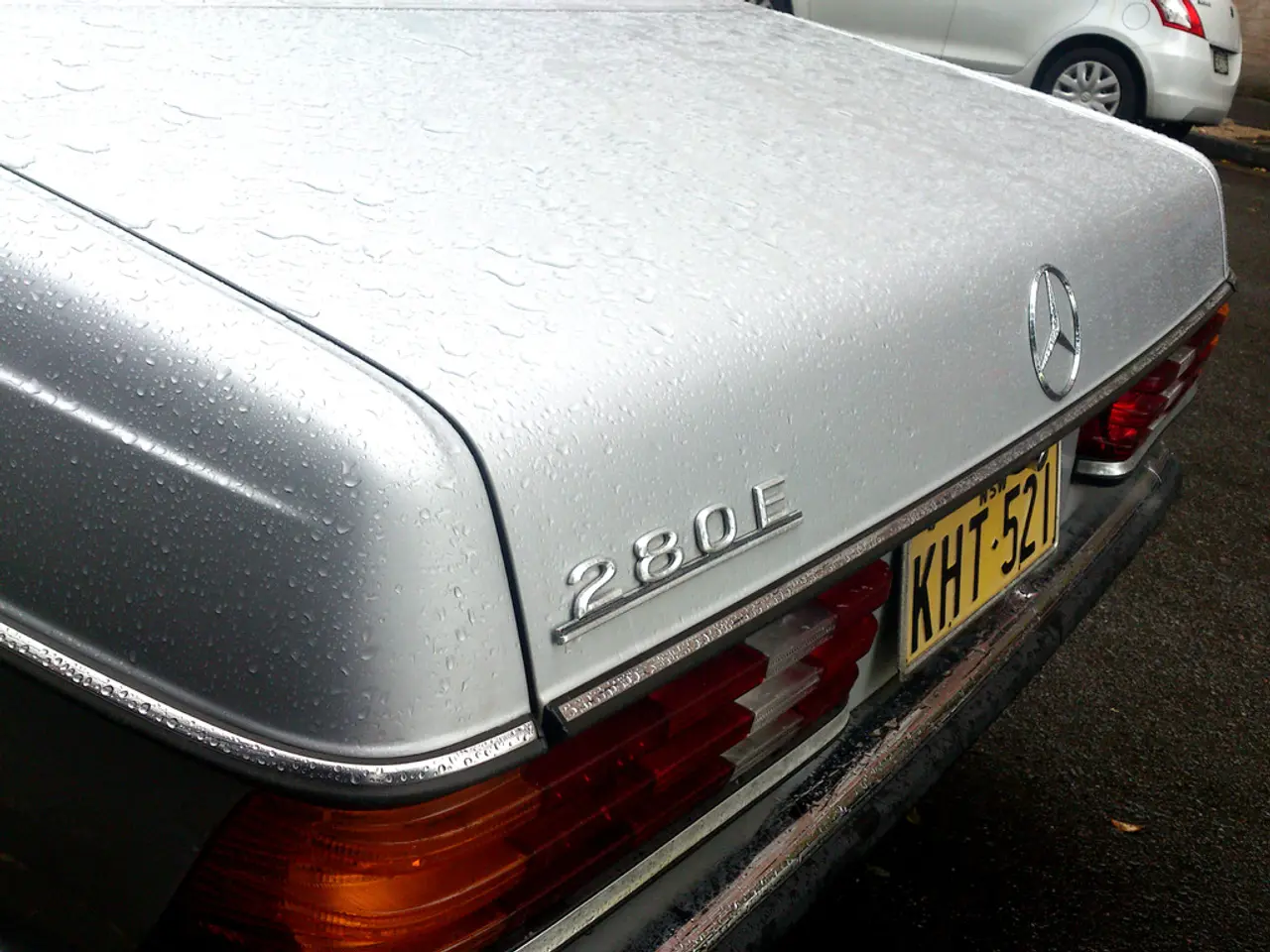Loss of Market Share for German Automobile Manufacturers Certified by Study
The German automotive industry is currently undergoing a significant transformation, with the sector expected to have shed around 50,000 jobs in the past year. This shift may be a response to the industry's adaptation to the changing market dynamics and the increasing competition from Chinese manufacturers.
According to a study conducted by Strategy&, a consulting firm that is part of PwC, Chinese manufacturers are faster at developing and bringing new products to market in key technologies such as batteries and software compared to their German counterparts. This speed and technological advantage have put pressure on German automotive suppliers, who were traditionally focused on combustion engine technology.
Over the past decade, German automotive suppliers have lost international market share, with their global market share dropping from 26% to 23%. Chinese suppliers, which played no role on the global market 20 years ago, have increased their share to 12% in the same period. Notably, Chinese companies like CATL have steadily risen to become world leaders in automotive battery production, profoundly challenging German automotive suppliers.
The local manufacturers in China also source their parts predominantly from Chinese suppliers, further exacerbating the situation for German suppliers. The study does not provide specific details on the new technological fields that the German automotive industry should explore to remain competitive, but it does recommend that domestic companies accelerate development and production and undergo a fundamental change of thinking, focusing on exploring new technological fields rather than continuously improving existing products.
Despite the current challenges, the study does not see everything in black and acknowledges the potential for growth. Henning Rennert, one of the authors, stated that the pressure is high but the industry has proven in the past that it can not only overcome crises but also grow from them. The German automotive industry has overcome a severe crisis in the 1990s, and it may be poised to do so again.
Interestingly, the global revenues of the ten largest car manufacturers stagnated last year, but the automotive suppliers increased slightly from 1.14 to 1.15 trillion euros. Chinese companies benefited the most from this growth. The global market share of German suppliers may have decreased, but the overall automotive supplier market is still growing.
However, the job losses in the German automotive industry are mainly due to the sales losses of European manufacturers, who are their main customers. The suppliers are crucial for the competitiveness of the automotive industry, as they not only produce parts but are also significantly involved in innovations. The authors of the study suggest that the German automotive industry should adapt to the changing market dynamics and focus on innovation to remain competitive.
In conclusion, the German automotive industry is facing significant challenges as Chinese manufacturers gain ground in key technologies such as batteries and software. However, the industry has proven resilient in the past and may be able to overcome these challenges through innovation and a focus on new technological fields.
Read also:
- visionary women of WearCheck spearheading technological advancements and catalyzing transformations
- A continuous command instructing an entity to halts all actions, repeated numerous times.
- Oxidative Stress in Sperm Abnormalities: Impact of Reactive Oxygen Species (ROS) on Sperm Harm
- Genetically manipulated rabbits sprout ominous black horns on their heads








